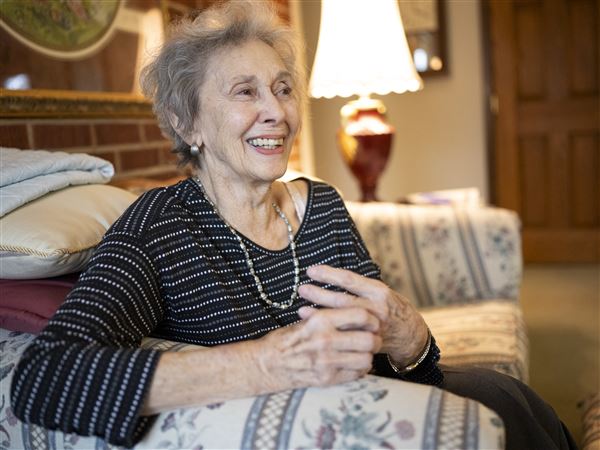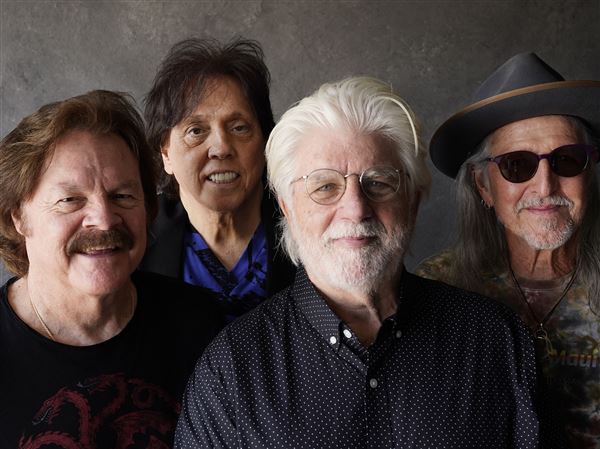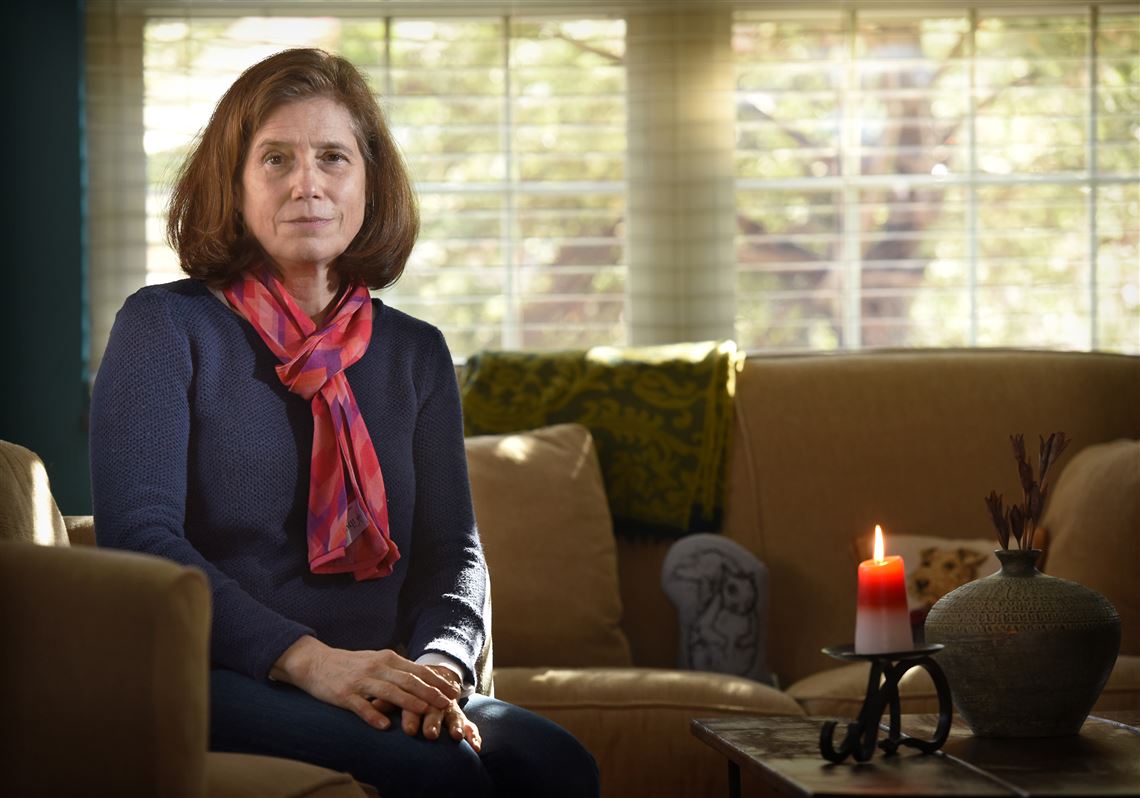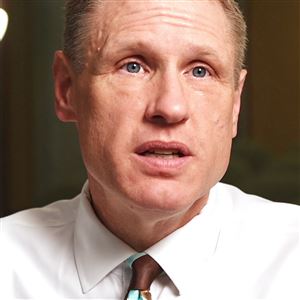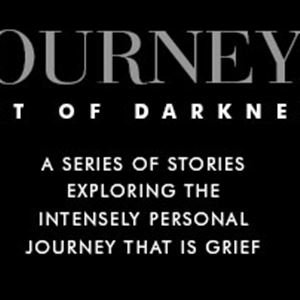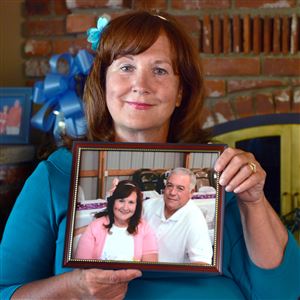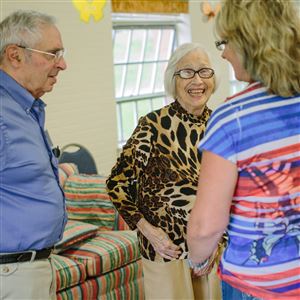The social worker knocked tentatively on the door and entered my hospital room, carrying my swaddled son tightly to her chest.
“You just carry them through the halls like that?” I asked.
“People usually know, when they see it is me,” she said.
She laid the bundle on my bed and carefully unwrapped the soft white blanket. He wore a little knit cap, cinched at the top with blue tape. His eyes were still tightly closed, mere creases in the swollen red skin of his face. I remembered the torn blister on his cheek from yesterday, still there. His tongue protruded from his mouth, a third lip. I felt embarrassment for him.
“He’s red today,” I commented inanely. “Yesterday he was black.”
The social worker gently took his tiny fist in her fingers and stroked him, saying, “He’s a beautiful little boy. Would you like to hold him?”
She tucked the blanket around him and placed him in my arms. He was cold. Very cold.
“How much time would you like?” she asked.
“Maybe an hour or so? My husband is on his way,” I responded, and she left.
I held him close, cupping his head in my hand. I removed the cap and caressed his thick dark hair with my thumb. I knew how to hold a baby. Two and half years of mothering our daughter, Olivia, had primed me for duty. This would be the baby who would benefit from my training. He would be the easy one. How desperately I wanted him to come to life. But the bundle was cold, still and heavy.
Yet, he was my baby. I held him tight, rocked him, and pondered. What was to be made of this child who was, but wasn’t? Who lived within me, but was dead in the world? Who was born, but was stillborn? Was he still born?
For the last 33 days, my husband Don and I had tried to make sense of the living paradox that I had become. I was a pregnant woman, a bearer of life, but my body was systematically destroying the heart of the baby I carried in my womb. Six years earlier, I had been diagnosed with lupus, an autoimmune disease in which the body mistakes its own tissues for invaders. In response, the immune system attacks and damages organs and tissues in the body. Lupus manifests differently in different patients, all depending on the type of autoantibodies the immune system makes. I happened to have the type of antibody that can attack heart tissue in a developing fetus. “Can” is the operative word here. At the time, there was not much research on this relatively rare condition and therefore few statistics to help guide us in our family planning decision. The general feeling was that we had a 20 percent chance of having an affected baby, but that 20 percent included all degrees of “affectation” – from a mild, temporary skin rash, to the eventual need for a pacemaker, or to complete heart block. Complete heart block didn’t seem very likely.
Not to be deterred by the low risk of of an incurable illness, I was intent on planning my life the way I had intended. I made sure I had regular blood tests for months before we even tried to conceive. If by chance the antibody level were to drop, we would be right on top of it. In spite of Don’s reluctance, I insisted on going forward with parenthood, even though my antibodies remained higher than any my doctors had seen at that time. I was sure we could manage whatever the outcome might be.
We did manage. I carried Olivia full term, with no complications. She was healthy. I got through the pregnancy without a major lupus flare. The red rash on Olivia’s face was minor and it was gone within a few months. I plowed on with my life plan.
Olivia was a strong-willed spirit who tested my propensity for having things my way. I had schedules and rules; she had other ideas. By the time she was 2, I was beginning to learn that I might have to be a little more flexible. Like all parents, we soon saw all too clearly that our baby was a singular being, as all babies are. Acknowledging that while still maintaining control was a challenge. Just as I was ready to move forward with child number two, child number one was emerging as a real “other” who was not shy about asserting her selfhood.
I stuck with my plan. We would have two children. I could not see it any other way. We already had Olivia. Next up would be Rex – or Olivia’s sister, on whose name we had not yet settled. At Olivia’s second birthday party, I was exactly who I wanted to be: a young mother, pregnant with her second child.
Whereas the nine months of carrying Olivia were fraught with worry about lupus antibodies, the early months of Rex barely brought the danger to mind. I felt I had overcome the risk. Olivia was healthy, living proof. I, on the other hand, felt quite ill. I needed more medication and was continually exhausted. Olivia stopped napping in the afternoons. By the fifth month of the pregnancy, I was at my wits end.
At my 25th week appointment, I was worried. I seemed so much bigger that I recalled being with Olivia. There was no history of twins in either of our families, but I worried about how I could ever manage two babies. My babysitter had cancelled at the last minute and I had to bring Olivia with me for my appointment. As I lay on the exam table, Olivia spun herself around and around in the drapery. I felt so out of control. The doctor confirmed that I was large for the gestation date and ordered a sonogram.
Our first view of Rex in the darkened exam room looked familiar. We had played the video of Olivia’s sonogram over and over, marveling at the little arm bones and the long, lazy yawn. Here was our new child, just like Olivia. His abdomen seemed a little big. I teased, “He takes after his father,” as Don had been gaining some sympathetic pregnancy weight. The technician was unfriendly, barely looking us in the eye. She left the room, saying the radiologist would go over everything with us. We commented to each other on her sour demeanor. For 45 minutes, we sat in the dark room, waiting. A palpable dread loomed under the surface of our consciousness. We talked about whether Don had time for lunch and where we could get it. A new reality lay waiting for us, but we held it at bay, clinging to our old world.
The news from the radiologist was simply that there was fluid accumulating in Rex’s abdomen. He, too, avoided our gaze. He sent us on our way to my obstetrician, leaving the grim revelation to him. My ears were ringing as we left the medical office building and drove in silence to the doctor’s office. We were rushed into an exam room and I was attached to a fetal monitor. There was no reassuring swoosh of a healthy heartbeat. Instead, the device emitted a disordered static, broadcasting Rex’s distress. The doctor moved the sensor around my abdomen and finally clicked off the machine.
“The baby is alive,” he offered, “but his heart is not beating in a regular pattern. That is causing fluid to accumulate, which is what you saw on the sonogram.”
“His heart!” I exclaimed, and suddenly I knew that the lupus antibody had done its damaging work. How could I have let my guard down?
“Can the baby die?” I asked. Wordlessly, the doctor nodded. The intense sadness on his face spoke what I was too numb to feel. Tears trickled down my temples, into my ears, as I stared at the exam room ceiling.
After a neonatal echocardiogram the next day, we received a virtual death sentence from the pediatric cardiologist, who predicted Rex would die within days. There was no way he could live with the damage to the electrical system of his heart. I would have to wait for my body to go into labor, which could take weeks. As I drove home, the adagietto from Mahler’s Fifth Symphony was playing on WQED.
The straining agony of the beautiful phrases accented my sobs. That evening, Don and I sat on the back porch trying to absorb what lay before us. The remains of Hurricane Hugo swept over Pennsylvania that late September evening, the winds tossing the tree limbs about, shaking summer’s last green leaves from the branches. The earth was heaving and sighing with us.
A week went by. Then another. Each day, I felt movement in my womb. Each day, we grappled with the unknown. Were the doctors wrong? Didn’t the echocardiogram show that it was hopeless? What if he were to survive and be gravely ill? What would that mean for our family? For Olivia? We struggled with our feelings, ashamed to admit that we were impatient for him to die.
Each day, Rex’s heart grew in size to compensate for its weak rhythm. Fluid continued to fill his abdomen and the cavity around his brain and subsequently my uterus. We both grew bigger and bigger. I was in greater and greater pain as the fluid pressed on my organs. Don watched in horror, asking daily, “Is he still kicking?”
By the fourth week, we were desperate for resolution. We tried to go about our regular lives. Though I was only 30 weeks pregnant, I was larger than full term. Strangers would smile and ask when I was due. “Yesterday,” I’d say, allowing them their joy. The horrible truth was hidden deep within me and I could not speak it any longer. My body was slowly killing my baby.
We went back to the cardiologist who was shocked to see that I was still pregnant and that the baby was still alive. He marveled at the size of Rex’s heart as it came into focus on the screen. The built-up cardiac muscles strained to keep the blood flowing, aided by my body’s support, just enough for life. I was Rex’s life support system, but he was dying because of me. We three stared at the screen, silenced by the mysterious power of life.
Unable to sleep at night, I curled up as best I could around my massive abdomen and caressed my child. I begged for delivery but clung to the precious little time I would have with him. My ambiguous feelings drew me deeper and deeper into my self, alienating me from others. I could not speak of the situation any longer and grunted a barely audible “yes” to Don’s queries about Rex’s movement. I was a maternal animal, drawn into the reality of my offspring, an obscure reality that only I knew clearly.
On the 35th day after the sonogram, my body was finally not able to sustain Rex any longer. The doctor’s declaration, “I think we can go ahead and break your waters,” were words of deliverance. As I sank into the wheelchair, a lightness pervaded me. I need not be in control any longer. The time was at hand.
My doctor stood at the foot of my bed. Don was by my side. Rex’s heart continued to beat erratically. I tensed and rode a contraction with my breathing.
“We can puncture your membranes and get the labor going, but this will inevitably start a process that will end with the death of the baby. Are we all clear on this? Do you both concur?” the doctor asked.
Don and I looked at each other. What choice did we have? Rex’s death was inevitable – out of our hands. “Yes,” we concurred.
The room spun around me. Heads bobbed in and out of view.
“We need to remove some fluid from the baby so that we can deliver him,” someone said. “Do you consent?”
“Yes. Yes,” I moaned.
A technician wheeled a huge machine next to the bed and swathed cold jelly over my bulging girth. The perinatologist’s head was inches from my face. I whipped my hand above my head and bumped him.
“She touched me. I need a new glove,” I heard him say.
He held a comically huge syringe and inserted it into my abdomen. I saw his hand pulling back slowly. A pinkish fluid filled the reservoir. Blood and water flowed from Rex’s side.
“Would you like an epidural?” the nurse asked.
“I may as well,” I conceded. “It doesn’t matter anymore.” Rex was beyond harm.
“It is over,” we said repeatedly to friends and family, with great relief. The focus was on me. I had survived the delivery. Life could now go on. “You have Olivia, thank God,” they said. “Be thankful for that.”
After that first euphoria after the delivery, my sense of gratitude rapidly dissipated and was replaced with a deep and painful grief. The stream of visitors distracted me from the profound truth of Rex’s reality, with misplaced words of consolation – “It wasn’t really a life.” When I returned home, Olivia was a constant reminder of what Rex would never be. Her welcoming embrace was sweet with the intensity of her need, but I felt only the absence of Rex’s need for my motherly care. My breasts wept with the fluid of life that would not nourish him. My arms ached with emptiness that could not comfort him. The void of my womb throbbed as I caressed it at night, groping desperately for my baby.
I could not accept that Rex was not a real baby. His heart had stopped beating sometime during the labor process. I never knew when. Rationally, I had accepted that he would be dead when he was delivered from my body. Emotionally, I did not feel that death until I held his cold body in my arms. In the weeks afterwards, I wished that he had been able to take one breath so that the world would acknowledge him as real.
His reality was marked with a “fetal death certificate.” As far as the world was concerned, he was never born. Yet, he looked like Olivia. He weighed over six pounds. He fit snugly in the crook of my arm that was designed so perfectly to hold a baby. He had been our son, Olivia’s brother, from the moment he was conceived. He was given his name before he was conceived. He had been ours forever.
As the days of new life unfolded, I found myself blocked off from the world. The multitude of support and sympathy offered by others did not come close to consoling me. I could not breach the barrier that separated me from the world. I did not want to breach it. I was living a separate truth in which Rex was real. I needed to keep him with me, as painful as that was. On days when the tears would wane, the pain was greater. He was present in my grief. I could not “move on.”
I began to be aware of an alternate, mystical reality. Each day, I waited eagerly for the mail. It was not the bundles of sympathy cards that I craved. I was looking for Rex. In some way, I expected him to appear on the doorstep. I eagerly anticipated my six-week check-up, sensing that in returning to the obstetrician’s office, I would find Rex, somehow there. I lived out the remainder of the pregnancy in my mind. I noted the date our childbirth preparation classes were to begin and walked through them in my mind. After his due date, I lived his life in my imagination – his homecoming, Olivia’s reaction, the warmth of tucking them both into bed.
As the months and years wore on, I was better able to attend to the details of my life as Olivia’s mother. The veil that had been pulled aside, revealing the supernatural truth of Rex’s existence, dropped back in place. Yet, over and over again, his reality would reappear. Several times as I drove along the lanes of the cemetery after visiting his grave, Mahler’s adagietto played on the radio. It had become a sort of talisman of Rex. Once, on Good Friday, I saw a father with his young son riding a red Schwinn bicycle in the graveyard. They boy was around 3 years old, pumping the two-wheeler with training wheels. Olivia had that same bicycle. It would have become Rex’s as she outgrew it. I received this as a gift – a reminder of Rex’s reality, despite his absence.
Almost a quarter century has passed since Rex died. Eventually the pain of grief was gone, replaced by a warm acceptance of the gift that Rex was. I have pondered him much over the years. Our lives have been full and mostly happy, especially with the joy of our Olivia.
The loss of Rex became, in a way, a lesson. Rex did, indeed, become our “easy” child. His life was compacted into a very short time, but held all that a child is. His life helped us to cherish Olivia’s life. He taught us how to let go – the hardest and most repeated challenge of parenting. His existence was a passionate, agonizing tearing away that allows us to appreciate the luxury of the gradual separations we have experienced with Olivia. And most profoundly, he taught us that in spite of the separations, a child is always present and held deep within a parent’s heart.
For many years, I agonized that my defective body had harmed my baby. I contemplated the meaning of the fault that turned a life-giving union between Don and me into death. What did that mean for our relationship? We were not able to generate life, not just in the literal sense, but in the figurative sense?
We have remained faithful over the years, each coping with our losses in our own way. Throughout, Rex has remained a very personal and real link between us. He is wholly and distinctly ours. Although Olivia is well aware that she almost had a brother, she has no recollection of those early events in her life and feels no sense of loss. Yes, Rex is clearly ours. Yet, so is Olivia. It is only Don and I who know Olivia deeply in love. It is only Don and I who give Olivia our very selves, in all our broken reality. We each have failed her over and again with our weaknesses and have enriched her over and over again with our strengths.
Rex stands as an archetype of all that a child is, compressed in his tiny life. As blood and water flowed from his side, he poured out the love from his large and expanding heart. Don and I were cleansed by that love, a love that has the power to redeem and the power to unite. The separateness manifest in the human condition is united in love by the coming together of a man and woman in a child. Rex, Olivia – all babies – are windows to the reality of love, a love that is veiled by the darkness of the world and the limitations of time and space.
What parent has not seen Truth in the stillness of his sleeping child? Rex’s stillness bore that Truth into life.
Jan Grice is a freelance writer living in Pittsburgh.
First Published: March 14, 2016, 9:44 a.m.
